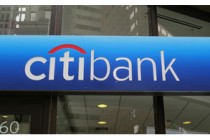Citibank Must Pay $700M Over Illegal Marketing, Collection Practices
by Ashlee Kieler, Consumerist
The Consumer Financial Protection Bureau ordered Citibank and one of its subsidiaries to pay $700 million in relief to more than 8.8 million consumers for engaging in a string of illegal credit card practices, including deceptively marketing and billing for debt protection and credit monitoring services, and misrepresenting fees related to debt collection actions.
In all, the CFPB estimates seven million consumer accounts were affected by Citibank’s deceptive marketing, billing, and administration of debt protection and credit monitoring add-on products, while one of its subsidiaries deceptively charged expedited payment fees to nearly 1.8 million consumer accounts during collection calls.
According to the CFPB complaint, from at least 2003 through 2012, Citibank and its subsidiaries – Department Stores National Bank and Citicorp Credit Services, Inc. – allegedly used deceptive means to market and enroll consumers in five debt protection add-on products, four identity theft add-on services and one credit monitoring add-on product.
The debt protection products – AccountCare, Balance Protector, Credit Protection, Credit Protector, and Payment Safeguard – were advertised to account holders as allowing the cancellation of a consumer’s balance, or deferment of the payment due date, if the consumer experienced certain hardships, such as job loss, disability, hospitalization, and certain life events, such as marriage or divorce.
The identity theft add-ons, called IdentityMonitor, DirectAlert, PrivacyGuard, and Citi Credit Monitoring Services, offered credit-monitoring or credit-report-retrieval services, while another product called Watch-Guard Preferred, was advertised as a wallet-protection service that notified credit and debit card issuers if the consumers reported a card lost or stolen.
The CFPB alleges that Citi and its subsidiaries routinely marketed these products deceptively to consumers during telemarketing calls, online enrollment, point-of-sale application and enrollment at retailers or when already enrolled customers called to cancel products.
Continue reading on Consumerist.com »
Tags: CFPB, CITI, Credit Cards, Deceptive
